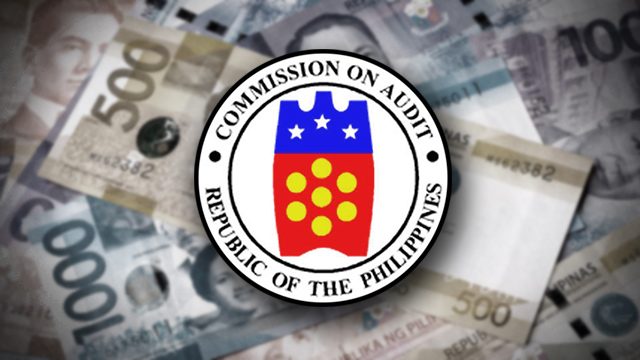SUMMARY
This is AI generated summarization, which may have errors. For context, always refer to the full article.

MANILA, Philippines – The Commission on Audit (COA) scored the poor implementation of two government scholarship programs after it discovered that out of over a thousand potential grantees, less than 50 students have benefitted from them.
The Expanded Students’ Grants-in-Aid Program for Poverty Alleviation (ESGP-PA) and the Tulong Dunong Scholarship Program have a combined budget of P86.98 million in 2015 but only P2.72 million had been used because of bottlenecks and problems in implementation.
According to the COA, the P50.3-million ESGP-PA was supposed to help 407 students chosen from poor households covered by the Pantawid ng Pamilyang Pilipino Program (4Ps). The scholars were to receive a cash grant of P30,000 per semester to take care of the school tuition and other fees, and supplies.
A COA audit report dated June 8 showed that only 46 students were enrolled at the Polytechnic University of the Philippines (PUP) under the ESGP-PA for the first semester of academic year 2015-2016. Forty-two students were enrolled in the second semester.
Fifty-one students were initially selected but less actually enrolled due to errors, including a delay in the stipend payments, mismatch in the names and entries submitted by the Department of Social Welfare and Development (DSWD) to the PUP database, and poor information dissemination.
“According to the scholars who were interviewed, some of them were not originally endorsed by the DSWD but directly applied with the SFAS (Scholarship and Financial Assistance Services) after learning about the program,” COA said.
“They further informed the audit team that their other co-grantees were not able to continue schooling because they were dependent on the grant that they will receive,” COA added, noting the fewer scholars in the second semester was caused by a delay in their stipend payment.
Lawmakers’ choice
A total of 1,023 scholars had been pre-selected beneficiaries under the P36.864-million Tulong Dunong Scholarship Program, but COA said the program had zero beneficiaries.
The Tulong Dunong program is for graduating high school students with a general weighted average of at least 80% in 3rd year, and at least 80% in the first 3 grading periods of 4th year.
The COA blamed the program’s failure to a “limitation” attached to it, which allowed 32 members of the House of Representatives to endorse their nominees for the program. Some lawmakers had branded the program as another form of pork barrel because of this.
Ten of the 32 House members submitted their respective lists of chosen scholars totaling 1,023 in 2015, but apparently not early enough.
“Despite the submission of the lists, no student was benefitted yet from the scholarship grants for SY 2015-2016. The list should have been submitted months before the start of the first semester or second semester in order to SFAS time to validate them,” COA said.
The Department of Budget and Management (DBM) also advised the PUP to hold the submission of the list of grantees pending the receipt of the list from the Commission on Higher Education.
“It appears that there are no clear cut guidelines on how the Tulong Dunong Scholarship Program is to be implemented, thus, creating confusion on the part of the PUP on whether or not the validated list should still be approved by CHED,” COA said.
The COA also questioned why the particular program was limited to the nominees of lawmakers, which may have left out students who were not their constituents.
“Said (congressional) offices have the discretion in selecting, screening, and determining the number of grantees and the amount of grant to each student hence, limiting the program only to the constituents of or selected scholars of the legislators thereby depriving other deserving underprivileged students to avail of the scholarship grant,” it said. – Rappler.com
Add a comment
How does this make you feel?
There are no comments yet. Add your comment to start the conversation.